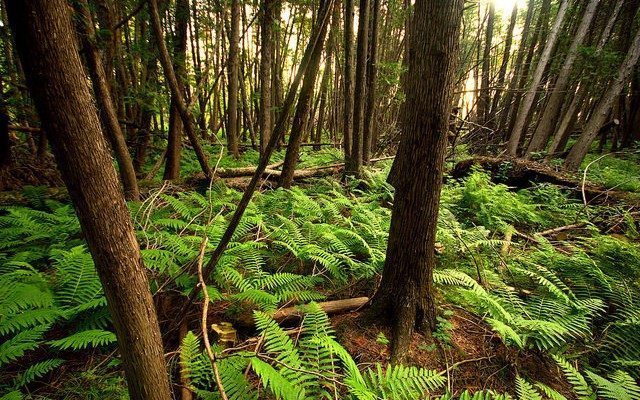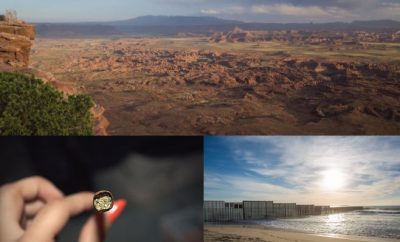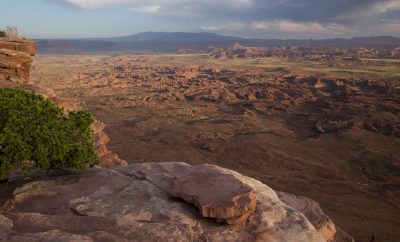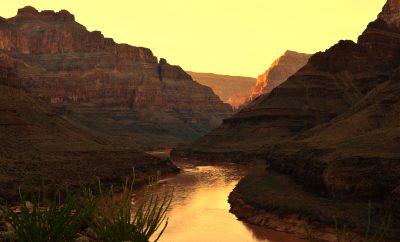 Image courtesy of [Joshua Mayer via Flickr]
Image courtesy of [Joshua Mayer via Flickr]
Energy & Environment
Logging in National Parks and Forests: A Contentious Debate
Logging was once a major industry in the western United States and often supported entire towns in rural areas. In the 1970s and 80s, under pressure from environmental groups, the federal government dramatically reduced timber harvesting inside federally protected land, reducing logging activity by up to 80 percent in some areas. Since the rampant wildfires that have swept through western states such as California, Nevada, and Oregon over the past few summers, many have called for increased logging inside national parks and forests in order to thin forests and decrease the number of destructive wildfires each year. Read on to learn about the logging industry, and the arguments for and against allowing continued logging in national parks and forests.
What has the government been doing about logging on federal land?
The House of Representatives passed the “Restoring Healthy Forests for Healthy Communities Act” (HR 1526), a bill that would require a minimum quota of timber to be harvested from federal lands each year for the creation of lumber or bio-mass energy, while removing environmental and federal restrictions to timber recovery projects in order to expedite this process. While the bill passed the Republican-controlled House with a 244-173 vote, political experts predict the bill has little chance of passing the Democrat-held Senate, especially after the Obama administration has promised to veto the bill if it reaches the President’s desk. The debate will most likely be ongoing until some sort of legislation can be agreed upon.
What’s the argument for logging in forests?
Logging supporters argue that forests have become too dense and overcrowded, and that forest thinning could help reduce the risk of forest fires while stimulating the economy. In the summer of 2013, a fire in the Yosemite Rim incinerated 400 square miles of forest while endangering nearby communities, and numerous similar fires have prompted affected residents to look for ways to reduce the threat of wildfire.
Forest fires not only threaten the trees in a particular area, but the wildlife as well. Some experts have indicated that fires such as these are increasing in frequency due to the increased density of national forests, caused by the reduction of logging in these areas in the 70s and 80s. Californians have a vested interest in the health of their national forests, as in addition to the yearly threat of wildfires, roughly 75 percent of California’s drinking water comes from forest watersheds. Many believe forest thinning through logging can improve the health of national forests and protect local wildlife.
Increased logging activity means more revenue for rural counties, where logging mills are often located, and more jobs in these areas. Many rural communities have experienced economic decline since environmental concerns decreased logging on federally protected lands. The authors of HR 1526framed the bill as a measure to both decrease the risk of wildfires and stimulate the job market in economically stagnant communities.
What is the argument against logging in forests?
Opponents of HR 1526, including Senate Democrats and the White House, are apprehensive about the bill’s measures to decrease regulations on logging, while pointing out that the economic stimulation of logging would counteract the outdoor recreation industries that have flourished in these same regions. An integral part of the bill is a measure to decrease public input, environmental analysis, and federal regulation of timber harvesting projects, which opponents say decreases control over the timber industry and would lead to a resumption of rampant deforestation experienced in the early-to-mid twentieth century. While the logging industry could create more jobs and provide economic stimulation to rural counties, logging would damage the outdoor recreation industry that has flourished in communities adjacent to national parks and forest. Therefore, HR 1526 would essentially destroy one newly established industry in the hope of reinstating what many consider an antiquated industry.
Many opponents also point out that in past TSPIRS reports (Timber Sale Information Reporting System), the US Forest Service repeatedly reported significant losses in its timber sales. Although the Forest Service has not released one of these reports since 1997, opponents of logging in national parks do not expect the logging industry to be much more profitable for the US Forest Service now than it was then.
Many scientists point out that forest wildfires are a natural part of the life of any forest, and that while in the short term these wildfires destroy trees, wildlife, and their habitats, in the long run wildfires help create enriched soil, greater biodiversity, and the greater overall health of a forest. While it is important to protect communities at risk of wildfire destruction, forest thinning would actually do little to improve the health of American forests.
Conclusion
Logging is both a way to provide energy and keep forest populations under control, but when done in excess it can be harmful. The political debate about logging has been contentious, but with the constant changes brought by the environment, the political landscape, and logging companies, but it is a hot topic to keep an eye on.
Resources
Primary
U.S. Congress: Restoring Healthy Forests for Healthy Communities Act
Additional
Billings Gazette: Barrasso Sponsors Bill to Increase Logging in National Forests
CBS Sacramento: Rim Fire Prompts Calls for Opening National Forests to Logging
San Francisco Gate: Pro and Con on the Healthy Forest Initiative
Jefferson Public Radio: Groups Aim to Boost Logging, Restoration in Olympic National Forest
A New Century of Forest Planning: Planning in HR 1526
Earth First: Greenwashing Senators Call for Increased Logging in National Forests
Kentucky Heartwood: The Economics of Logging Our National Forests
AmericanForests.org: Burning Hot: The Evolution of Eastern and Western Fires
All Gov California: House GOP OK’s a Lot More Logging in California National Forests
Los Angeles Times: House OK’s More Logging in National Forests, Including in California
AmericanForests.org: HR 1526: Limiting Judicial Review of Forest Management
Jurist: U.S. House Approves Bill to Increase Logging in National Forests








Comments